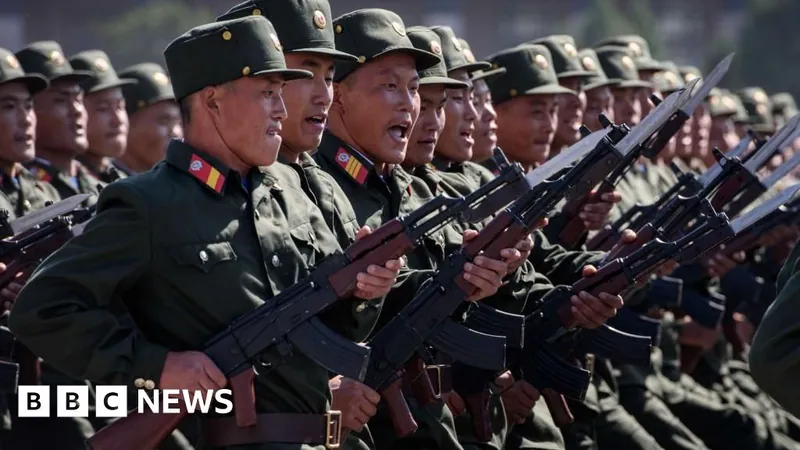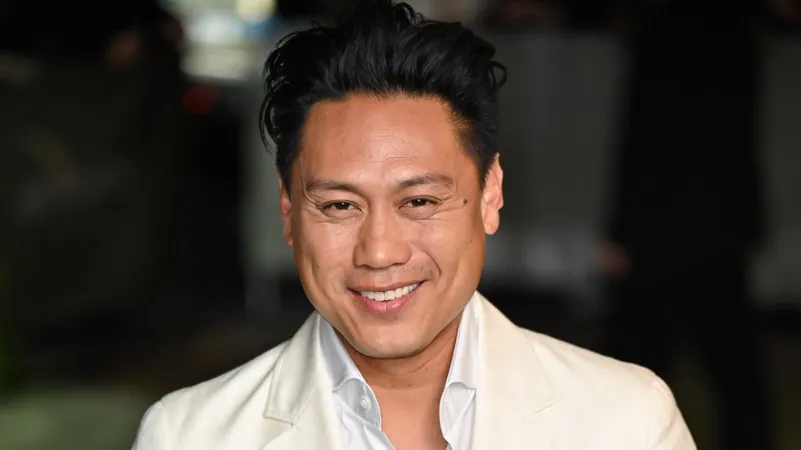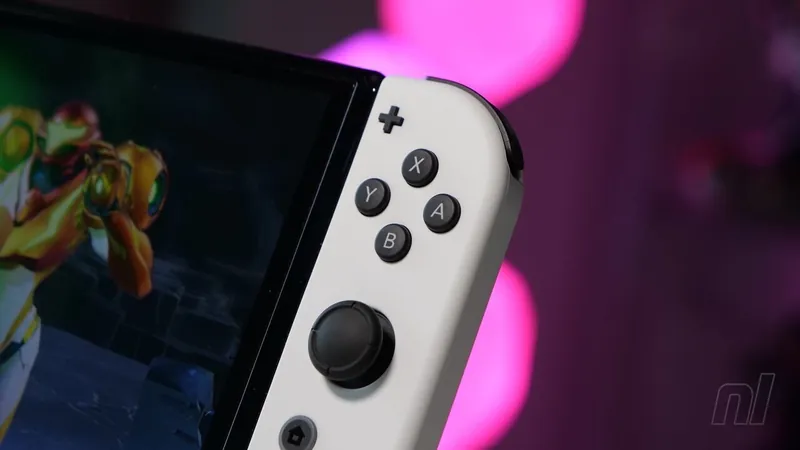
North Korean Troops in Ukraine: The Unexpected Allies?
2024-11-18
Author: Lok
Rumors first surfaced in October about North Korean troops potentially supporting Russia's military endeavors in Ukraine. Initially, it was speculated that these forces would not engage in combat roles due to their inexperience on the battlefield. However, recent intelligence from the U.S. and Ukraine suggests that these troops have indeed seen action against Ukrainian forces, prompting a reevaluation of their capabilities and assignments.
The number of troops being dispatched from North Korea was originally estimated at around 11,000 by U.S. officials, but reports from Bloomberg hint that Pyongyang could send up to 100,000 soldiers. The true figures remain shrouded in secrecy, as both Moscow and Pyongyang have declined to comment on these claims.
Are North Korean Troops Effective in Combat?
Assessing the effectiveness of North Korean troops is challenging. The Korean People's Army (KPA) boasts considerable numbers, with 1.28 million active soldiers. Yet, they lack modern combat experience compared to the Russian military. Mark Cancian from the Center for Strategic and International Studies (CSIS) notes that, while the KPA is deeply indoctrinated, they are "thoroughly indoctrinated but with low readiness." He warns against viewing them simply as "cannon fodder," arguing that this is an overestimation of Ukrainian confidence.
Reports from Ukraine and South Korean intelligence indicate that many of the soldiers sent to support Russia are among the KPA’s elite, specifically from the 11th Corps, often referred to as the Storm Corps. This unit specializes in infiltration, sabotage, and intelligence operations.
Experts like Michael Madden from the Stimson Center argue that North Korean soldiers may excel in psychological resilience and physical endurance rather than combat skills alone. This assertion is backed by testimony from former South Korean army lieutenant-general Chun In-bum, who notes that these troops are better trained and motivated than newly conscripted Russian soldiers, many of whom are ill-prepared for combat.
Adding to the intrigue, videos have surfaced online showing individuals believed to be North Koreans, dressed in Russian military gear and participating in training exercises within Russia. This suggests that both countries are actively collaborating to enhance their military effectiveness.
The Strategic Involvement: Why North Korea and Russia Are Teaming Up
But what motivates this unusual alliance? From Moscow's perspective, the ongoing war has strained its military resources, with estimates suggesting that up to 600,000 Russian troops may have been killed or injured since the war began. President Vladimir Putin has announced multiple expansions of the Russian forces, with a current recruitment drive for 20,000 new soldiers each month. Meanwhile, North Korea is reportedly seeking both financial support and advanced military technology through this collaboration.
For each North Korean soldier deployed, estimates put the financial compensation at around $2,000 a month, translating to a significant financial boost for Pyongyang. Additionally, gaining access to Russian military advancements could further arm North Korea against its adversaries, particularly South Korea and the U.S.
South Korea's Response Amid Rising Tensions
As these developments unfold, South Korea finds itself increasingly alarmed. The recent increase in military cooperation between Moscow and Pyongyang, especially amid historical tensions, has raised concerns in Seoul. The North's aggressive posturing, marked by military provocations and recent destructive maneuvers against border roads, has only exacerbated fears.
Experts suggest that North Korean troops may be concentrated in the Kursk border area, where they could potentially gain valuable combat experience. The South Korean military leadership is concerned that this experience could translate into enhanced operational capabilities in the future, thus altering the strategic balance on the Korean Peninsula.
Moreover, South Korean President Yoon Suk Yeol has signaled a willingness to consider providing defensive support to Ukraine, marking a notable shift in Seoul's longstanding policy of non-interference in active conflicts. This development could have significant implications for regional military dynamics.
The geopolitical landscape is evolving rapidly, and as these unlikely partners navigate their alliance, the implications for Ukraine, South Korea, and the broader international community are profound. What does the future hold as North Korea starts playing a pivotal role in foreign conflicts? Stay tuned as we delve deeper into this unfolding saga!



 Brasil (PT)
Brasil (PT)
 Canada (EN)
Canada (EN)
 Chile (ES)
Chile (ES)
 España (ES)
España (ES)
 France (FR)
France (FR)
 Hong Kong (EN)
Hong Kong (EN)
 Italia (IT)
Italia (IT)
 日本 (JA)
日本 (JA)
 Magyarország (HU)
Magyarország (HU)
 Norge (NO)
Norge (NO)
 Polska (PL)
Polska (PL)
 Schweiz (DE)
Schweiz (DE)
 Singapore (EN)
Singapore (EN)
 Sverige (SV)
Sverige (SV)
 Suomi (FI)
Suomi (FI)
 Türkiye (TR)
Türkiye (TR)